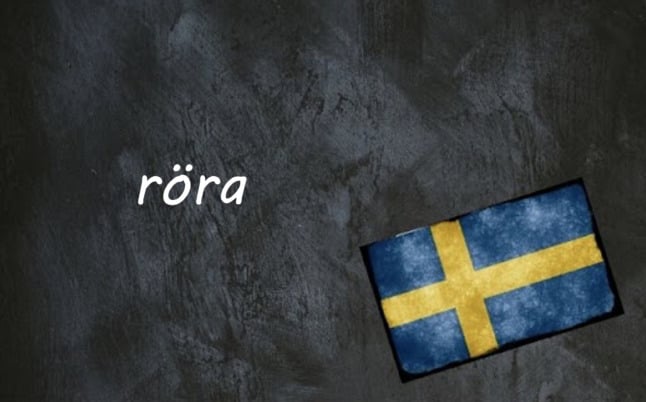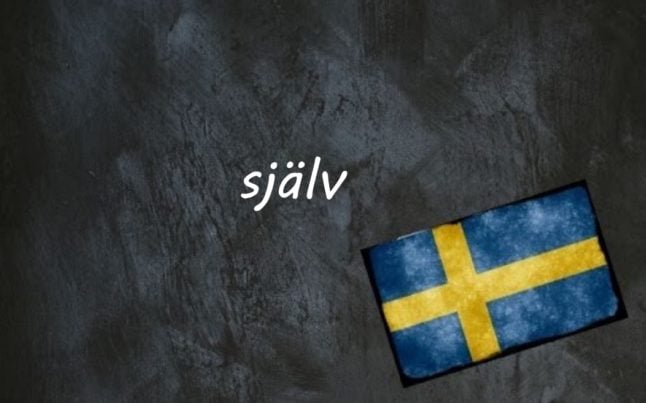If you’ve been following the recent developments in Swedish politics, you may have seen the political situation described as a “röra”.
In this context, röra refers to a mess, with the adjective being rörigt – messy.
Another topical use of the word röra is in the phrase den rödgröna röran – the red-green mess – originally coined during an election debate in 1994 between then-prime minister, Moderate Carl Bildt and leader of the opposition, Social Democrat Ingvar Carlsson. In essence, the term refers to the fact that compromises between the Social Democrats and the Green Party often end in a röra.
The phrase rödgrön röra is still popular today, with journalist Håkan Boström of newspaper Göteborgs-Posten describing the political situation on Wednesday as “En rödgrön röra utan motstycke”, or “An unparalleled red-green mess”.
However, röra has a few other meanings – both as a noun and as a verb.
Firstly, you may have noticed that Swedes love to eat röror – you’ll spot them in supermarkets or restaurants, usually used to describe some kind of dip, spread or sauce.
Hummus, for example, the chickpea-based spread or dip, can be referred to as kikärtsröra – chickpea dip. Guacamole, the avocado-based dip often served with Swedish tacos, can also be referred to as a avokadoröra.
At many Swedish holidays such as Easter, Christmas or Midsummer’s Eve, you’re likely to spot gubbröra on the buffet table – literally translating as “old man dip”, this is a mixture of chopped sprats, boiled eggs, chives and dill.
A classic restaurant dish is Toast Skagen, named after Denmarks northernmost town where the North Sea meets the Baltic, which consists of toasted bread topped with Skagenröra – a spread traditionally made from prawns, mayonnaise and dill, sometimes with the addition of red onion, lemon or fish roe.
Wondering how to order scrambled eggs for breakfast? Ask for äggröra.
Greek tzatziki, Levantine baba ghanoush, Italian pesto and South American chimichurri – yep, you guessed it, all röror.
This comes from the verb, röra, meaning “to mix”. Another meaning of röra can be “to touch”, both in a physical and emotional sense. Returning to politics, Magdalena Andersson stated that she was “väldigt rörd” or “extremely moved” after she was elected as Sweden’s first female prime minister on Wednesday.
This meaning can also be seen in the word rörelse, meaning “movement” – both a political movement and the physical movement. Two people may also be rörande överens on a subject – meaning that they are entirely in agreement.
Don’t get a röra confused with a rör, though – the first is a dip, the latter is a pipe.
Examples:
Den röriga rörmontören blev rörd till tårar över hennes rörande bra gubbröra.
The messy pipe fitter was moved to tears by her exceptionally good gubbröra.
Jag tappade en hel burk ris på golvet igår och den gick sönder. Vilken röra!
I dropped a whole jar of rice on the floor yesterday and it broke. What a mess!
Villa, Volvo, Vovve: The Local’s Word Guide to Swedish Life, written by The Local’s journalists, is now available to order. Head to lysforlag.com/vvv to read more about it. It is also possible to buy your copy from Amazon US, Amazon UK, Bokus or Adlibris.



 Please whitelist us to continue reading.
Please whitelist us to continue reading.
Member comments